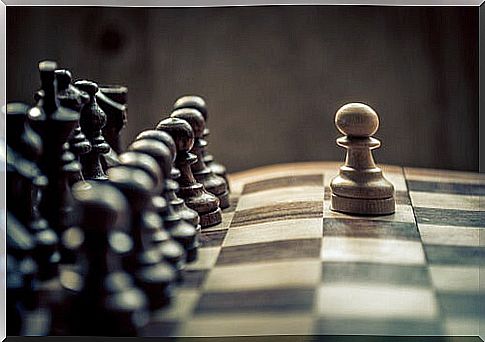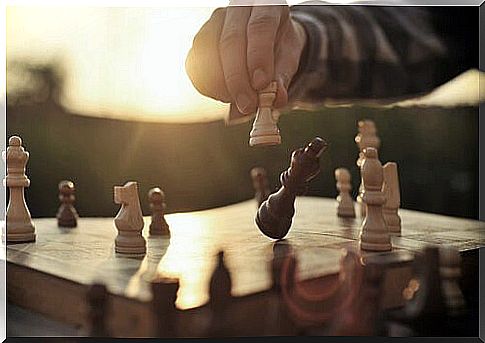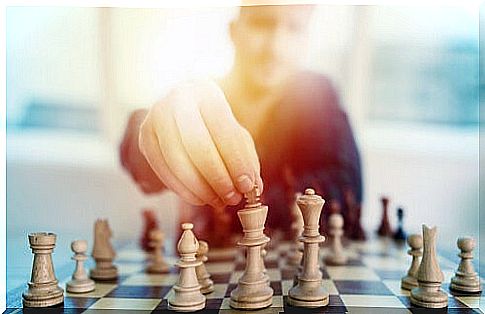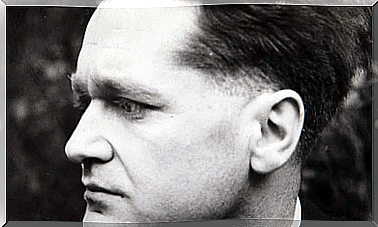Playing Chess: 5 Benefits For Your Brain

Chess is a very old strategy game that involves quite complete cognitive and emotional training. Some of its main benefits are the improvement of planning, organization, problem solving, attention, visuospatial capacity, memory, artificial and emotional intelligence.
Playing chess is the best example of playful intellectual activity. In addition, it helps to develop other very positive capacities such as socialization and respect for the rules of the game. In fact, it is considered a sport.
One of its best qualities is that it can be practiced by anyone. Only some initial maturational skills are required which, as practiced, develop until they provide us with fascinating changes at the cognitive level and in the way we interact with reality.
Since 1995, UNESCO has recommended the incorporation of chess into the curricula. This is recommended at the primary and secondary levels, both for children and adolescents, in all member countries. However, this objective has not yet been achieved.

Chess history
The origin of chess remains controversial. However, the most accepted version is that it was invented in Asia, probably in India. Its original name was Chaturanga, and from there it spread to China, Russia, Persia, and Europe. In the old continent it was where the rules of the current game were established.
In the 18th century, the first sports clubs and federations were founded to play chess. After many small competitions were held throughout Europe, in 1851 the first international tournament was held in London. The popularity of international competitions led to the creation of the title of world champion. Finally, in 1924 the International Chess Federation (FIDE) was founded in Paris.
Another curious fact related to chess is that in 1997, the supercomputer Deep Blue defeated Kasparov, world champion, in a six-game match. The confrontation was widely covered in the press and was considered “the most spectacular event in the history of chess . “
5 benefits of chess for your brain
Increase creativity
In chess it is not enough to respond to the opponent’s moves or try to follow previously studied patterns. On the contrary, to achieve a clear advantage over the opponent, the player must think about all the movements that he could carry out. In this way, because it is necessary to imagine how to get to each position, the opponents greatly develop their creativity.
Prevents Alzheimer’s
The brain works like a muscle and therefore must be exercised. Playing chess has proven to be effective as a prevention for the development of Alzheimer’s-type dementias. Obviously, this game cannot completely prevent this type of disease, but it is effective in delaying its appearance.
In fact, several longitudinal studies have confirmed this beneficial effect. For this reason, chess has begun to be used to combat the development of these pathologies.
Increase brain development
Games like chess, by challenging the brain, stimulate the growth of dendrites. These are responsible for sending the signals emitted by neurons. Therefore, the greater the number of dendrites, the neuronal communication in the brain improves and becomes faster.
On the other hand, playful participation in competitive activities also fuels the formation of neuronal synapses. These connections are what allow to improve the speed and effectiveness of thinking.
Improves efficiency to work in stressful situations
In chess, time and the permanent threat that your pieces could be captured often cause positive mental stress. Therefore, it is a good way to learn to remain calm and have more emotional self-control.
The ability to self-control is essential for players. This is because chess is a discipline that requires great concentration. During a game, competitors can be absorbed for hours trying to decide the next move, ignoring everything that happens around them.

Improve memory
For the chess player, memory is a very important ally. This is due to the multiplicity of alternatives for each play and the relative little time to choose the best answer. Many of the solutions can be based on experience or prior knowledge of similar positions in other games. However, these answers can also come from the study of other players.
That is why chess fans know that playing this game improves memory skills. Good players, after many years of practice, perform exceptionally on tasks that involve memory and recall.









